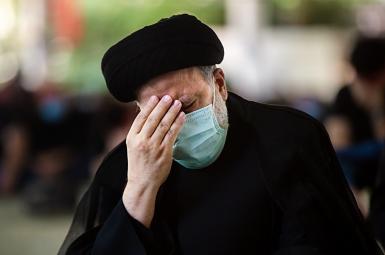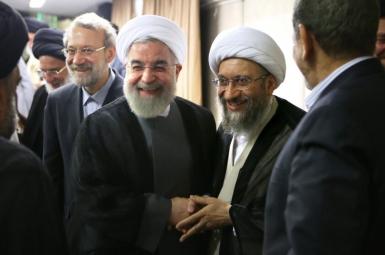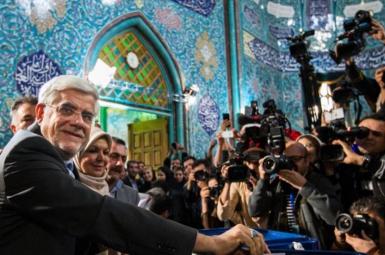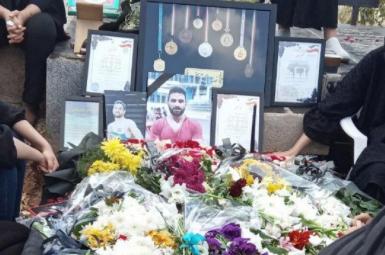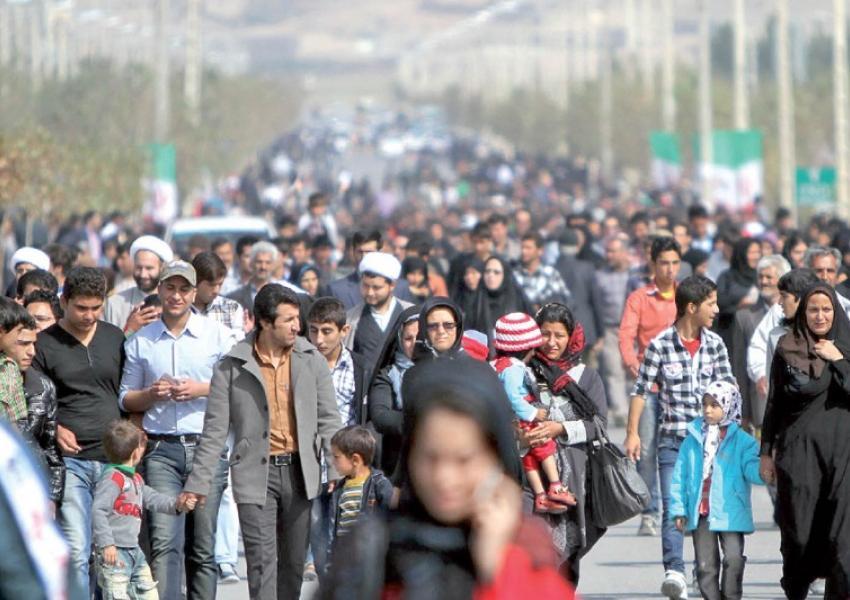
Exclusive: Most Iranians Believe President Lacks Real Powers, Survey Shows
Only one in four Iranians questioned about the extent of the presidents' ability to solve the country's problems believe the government chief has adequate powers, an opinion survey exclusively carried out for Iran International TV last week reveals.
In response to the question of to what extent a president is capable of resolving the issues the country faces, 26% chose the "very much" option, 45% said "to an extent", 6% believed the president's powers are "not that much", and 18% believe the president's powers are "too little". The question was left unanswered by 5% of the respondents.
Although the president has substantial powers on paper, but the Supreme Leader dominates decision making and appointments in a wide range of fields, including the military, intelligence, the judiciary, state media and key government ministers and in others.
Interviews for the survey were conducted over the phone between May 28 and June 1 by Stasis, a research analytics and consulting firm based in the United States and included a random sample of 1,473 Iranians aged 18 and older living across the country.
Using its experimental likely voter model combining the results of four different questions among the completed calls to evaluate who should be clustered as a likely voter, Stasis has estimated that 58% of respondents are non-voters, 12% are undecided, and 30 percent are likely voters in the June 18 controversial presidential poll.
An earlier survey for Iran International TV by Stasis carried out over the phone between May 2 to 11 indicated that 27% of the electorate would definitely vote, 18% were undecided and 55% were not voting. The new results show an increase of 3% in the number of likely voters.
To estimate the likelihood of respondents going to the ballot box, their responses to different questions were weighed and the final percentage of likely voters ascertained. One of these questions was their attitude to toward the decision of the lection watchdog, the Guradian Council to reject three important candidates, former president Mahmoud Ahmadinejad, former parliament speaker Ali Larijani and Vice President Es’haq Jahangiri.
Of the respondents, 55% completely disagreed with Ahmadinejad's disqualification while 26% completely agreed. Jahangiri's disqualification was unacceptable to 16% against 48% who completely agreed. Larijani's disqualification was unacceptable to 21% while 47% completely agreed with it.
Overall, 54% of respondents completely or somewhat disagreed with candidates' disqualification by the Guardian Council against 32% who completely agreed with its decisions.
According to the results of the Stasis survey, 54% of the likely voters will vote for Chief Justice Ebrahim Raeesi (Raisi), widely believed to be the frontrunner in the June 18 poll, over the rest of the approved candidates with Mohsen Rezaei, Abdolnaser Hemmati and Saeed Jalili each getting 3% of the votes. 31% said they had still not decided who to vote for.
In response to the question of their likelihood to choose between Ahmadinejad and Raeesi if Ahmadinejad was allowed to run and compete with Raeesi, 46% of all respondents chose Ahmadinejad while 24% chose Raeesi and the rest of the respondents either did not answer or were undecided or not voting. This shows that if Ahmadinejad was in the race more people would turnout to vote, possibly lifting the turnout to above 50 percent.
The opinion survey results indicate that 10% of respondents tend to lean toward reformists, 12% toward principlists, and 18% toward independents. Of the respondents, 40% chose the "others" option and 20% left the question unanswered. This indicates around 60 percent of respondents did not see a good choice from political factions and politicians allowed to be active in the Islamic Republic.


